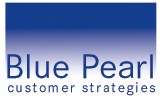Can Spices in Our Food Relieve Inflammation?
 Tuesday, July 31, 2012 at 7:52PM
Tuesday, July 31, 2012 at 7:52PM  David Fisher, R.D. tagged
David Fisher, R.D. tagged  ccure inflammation,
ccure inflammation,  cooking with spices,
cooking with spices,  food allergies,
food allergies,  healing spices
healing spices  Email Article
Email Article  Print Article in
Print Article in  Health,
Health,  Nutrition Tip
Nutrition Tip 
Note from the Editor
Welcome to our newest guest blogger, David Fisher, R.D. I'm very excited for David's contributions to the blog, he is a registered dietician who specializes in the application of autoimmune paleo and other similar protocols for managing autoimmune diseases. Read his first article for The Tender Palate, and more about him below. Welcome David!
~Elisabeth Veltman
Chronic Inflammation & Foods
It seems that inflammation is the bane of modern existence. This nebulous state of the human body, or parts of it, is the body’s natural response to a foreign invader, be it an allergen, toxins, cancer or a virus, bacteria or parasite. Inflammation has also been linked to virtually all Western diseases, such as obesity, diabetes, cardiovascular disease and autoimmune disease. Inflammation is “good”, when it is a short-term situation that appropriately helps us heal (i.e. when we get a cold). However, inflammation is “bad” when it becomes chronic (long-term), or is the result of a confused immune system. Chronic inflammation is a sign of a deeper problem -- understanding the root cause through a trained physician is important - so if you are experiencing this, get yourself to someone that can help diagnose you. The question we are exploring in this article is, simply: can food help relieve inflammation and help our bodies heal more quickly?
If you read this blog you probably believe that foods not only have the power to improve health, but that they actually alter physiological processes like inflammation. It is true that foods, or specific compounds contained in foods, can influence inflammation in various ways. Omega-3 fats, and foods containing them, are commonly and appropriately called anti-inflammatory. Spices have also gained notoriety for the same capability and there appears to be some truth to this.
The Internet, TV, and even family and friends are full of passionate recommendations for spices, herbs, foods, or supplements (nutraceuticals) that help “cure” or reduce inflammation. Some of that information comes from cultural traditions (my mom had me drink echinacea tea to ward off a cold) and much of it is derived from modern science. Let’s review a few specific supplements and take a peek at the science behind them.
NOTE: Please note that I will not be addressing fish oil and other omega-3 fats as I am focusing more on Western herbs and spices that we can use in our daily cooking, not the foods themselves. For purposes of this article, I am also leaving out the thousands of years of practice that traditions like Chinese Herbal Medicine and Ayurvedic Medicine gives us. This is a powerful tradition that is best administered by a trained practitioner. This article focuses on what you can do with cooking at home.
Herb/Spice Extracts and Inflammation
Here are components of specific herbs and spices that have shown scientific promise in reducing inflammation.
¥ Allicin and diallyl sulfide from garlic
¥ Curcumin from turmeric
¥ Gingerol from ginger
¥ Humulene from hops
¥ Eugenol in basil, cloves, nutmeg, cinnamon and bay leaf
¥ Piperine in black pepper
¥ Capsaicin from hot peppers
¥ Anethole in tarragon, anise and fennel
¥ Carnosol in rosemary
¥ Perillyl alcohol in caraway seed
¥ Quercetin in allspice, horseradish and onion
¥ Sulphoraphane in mustard
The first striking thing is the number of different compounds in a wide array of herbs and spices. Even more impressive is that this is not an exhaustive list.
The Studies
There are a few standard methodologies behind the studies of these spices and compounds. Most of the results come from either cell studies (in vitro) or animal studies.
Cell Studies
In cell studies a scientist examines how a specific compound affects the metabolism of a cell or group of cells. These can either use bacterial cells or human cells. In some cases in vitro studies look further, to components inside cells, such as using mitochondria to evaluate the effect of coenzyme Q10. The benefit to these studies is great control (minimizing confounding factors). The result, however, is greatly removed from everyday human life.
Most of the compounds listed above affect some part of the metabolic signaling that results in inflammation. You might be familiar with TNF-ɑ, or interleukins (IL) 1, 6 or 8, which are signaling molecules that help regulate the immune system by doing things like telling cells to ramp or up slow down an inflammatory response. Herbs and spices affect these and other compounds, and in this case reduce inflammation.
Animal Studies
Animal studies use any number of different critters. The results do not translate directly to humans, although they are one step closer. Research often follows this path: cell study, animal study, and then human study.
It isn’t until you reach the point of placebo-controlled, randomized human intervention trials that solid, scientific recommendations can be made to affect specific outcomes. For instance, only after a human trial would doctors be able to recommend that you take 500 mg of curcumin once daily for thirty days to reduce acute inflammation in a celiac patient who has been exposed to gluten* (this is a fictional example).
Not many studies have reached the point of human trial. But this doesn’t mean that we can’t try using these herbs and spices, and potentially their specific extracted compounds (like curcumin from turmeric) to affect certain conditions. It just means that we have no proof it will work.
Cinnamon & Turmeric: Data From Humans!
The most extensively studied spices relating to inflammation appear to be cinnamon and turmeric. When I say extensively studied, I mean there have been some human trials done, but they are mostly small, and are largely preliminary in nature.
One research group showed promise in two studies with regard to cinnamon and postprandial (after-eating) glucose and insulin levels. One tablespoon of cinnamon with a rice pudding significantly reduced blood glucose and delayed stomach emptying (which might have been the mechanism for reducing blood glucose). A half tablespoon of cinnamon did not have the same effect in a similar trial, but it did decrease insulin levels. Reducing blood glucose and insulin (when elevated) could very well reduce inflammation. The best part? I know of no side effects of using cinnamon when making dessert. I certainly can’t say that for drugs used to lower blood sugar in diabetics.
Curcumin has been tested in real people with diabetes and shown to reduce blood sugar. It was also tested in a very small human trial on rheumatoid arthritis, an inflammatory autoimmune disease. The group of 18 experienced a significant improvement in morning stiffness and joint swelling, which is clearly represents a reduction in inflammation. Similarly, ten men with psoriasis, an inflammatory skin condition, all found either improvement or resolution after eight weeks of applying a gel containing curcumin.
Enough With The Research – EAT REAL FOOD
The take away here is that we are beginning to understand some ways herbs and spices, and their constituents, affect inflammation. We have some good theories and we are slowly beginning to test them (no one said the scientific method is fast!). The nice thing is that one conclusion can already be reached: EAT REAL FOOD. Choose fresh food and prepare it with plenty of delicious herbs and spices. Doing so will give you all these beneficial ingredients and infinitely more that we’ve yet to identify and test on a mouse.
If you want to test some of these compounds in supplement format as well, you can give it a try. Just be sure to listen closely to your body to determine if you are helping or hurting. Check with your doctor to be sure that there aren’t certain herbs or spices that might interact with the medication that you are currently taking. Also, make sure you watch for food allergens in your supplements. Many supplements are either made or processed with common allergens like dairy, wheat, soy and yeast. Start with high quality supplements and call the company to make sure that they are processed in accordance with your particular food allergy requirements.
I encourage my clients to approach herb and spice extract supplements (and really, all supplements) cautiously. Natural does not always mean safe, and with the limited research available it is difficulty to estimate appropriate doses required to see any benefit, assuming one even exists. Real food is the best approach.
For the research lovers, I encourage you to dig around PubMed and Google Scholar for information on the supplement you’re interested in. Odds are you’ll find some sort of research that will help you with your experiment. These resources are incredibly easy to use, even for the lay person.
For the rest of you I encourage working with a healthcare practitioner or even seek the advice of a friend who has already experimented with the supplement in question. Start slow and listen to your body.
Lastly here is a delicious turmeric tea recipe to help you get started using some of these spices. Let me know if you like it as much as I do!
About The Author
 David Fisher, R.D. is a registered dietitian with a deep interest in ancestral health. His own ongoing battle with Inflammatory Bowel Disease, an autoimmune condition, has given him a unique perspective and has allowed him to apply the principles of the autoimmune paleo protocol in order to maximize his own health. In his practice, he applies autoimmune paleo and other similar protocols to help patients manage autoimmune diseases.
David Fisher, R.D. is a registered dietitian with a deep interest in ancestral health. His own ongoing battle with Inflammatory Bowel Disease, an autoimmune condition, has given him a unique perspective and has allowed him to apply the principles of the autoimmune paleo protocol in order to maximize his own health. In his practice, he applies autoimmune paleo and other similar protocols to help patients manage autoimmune diseases.
David holds a bachelors in Management from St Louis University and completed my nutrition training, including dietetic internship, at the University of Nevada, Reno. He is a Registered Dietitian with the American Dietetic Association.
Sources:
Aggarwal, B. B., M. E. Van Kuiken, and L. H. Iyer. "Molecular Targets of Nutraceuticals Derived from Dietary Spices: Potential Role in Suppression of Inflammation and Tumorigenesis." Experimental Biology and Medicine 234.8 (2009): 825-49.
Aggarwal, Bharat B. "Targeting Inflammation-Induced Obesity and Metabolic Diseases by Curcumin and Other Nutraceuticals." Annual Review of Nutrition 30.1 (2010): 173-99.
Heng, M.C.Y., M.K. Song, and J. Harker. "Drug-induced Suppression of Phosphorylase Kinase Activity Correlates with Resolution of Psoriasis as Assessed by Clinical, Histological and Immunohistochemical Parameters." British Journal of Dermatology 143.5 (2000): 937-49.
Hlebowicz, J., A. Hlebowicz, and S. Lindstedt. "Effects of 1 and 3 G Cinnamon on Gastric Emptying, Satiety, and Postprandial Blood Glucose, Insulin, Glucose-dependent Insulinotropic Polypeptide, Glucagon-like Peptide 1, and Ghrelin Concentrations in Healthy Subjects." American Journal of Clinical Nutrition 89.3 (2009): 815-21.
Srivastava, Raghvendra M., Sarvjeet Singh, and Shiv K. Dubey. "Immunomodulatory and Therapeutic Activity of Curcumin." International Immunopharmacology 11.3 (2011): 331-41.
White, B. "Clinical Inquiry. Does Turmeric Relieve Inflammatory Conditions?" Journal of Family Practice 60.3 (2011): 155-56.


Reader Comments